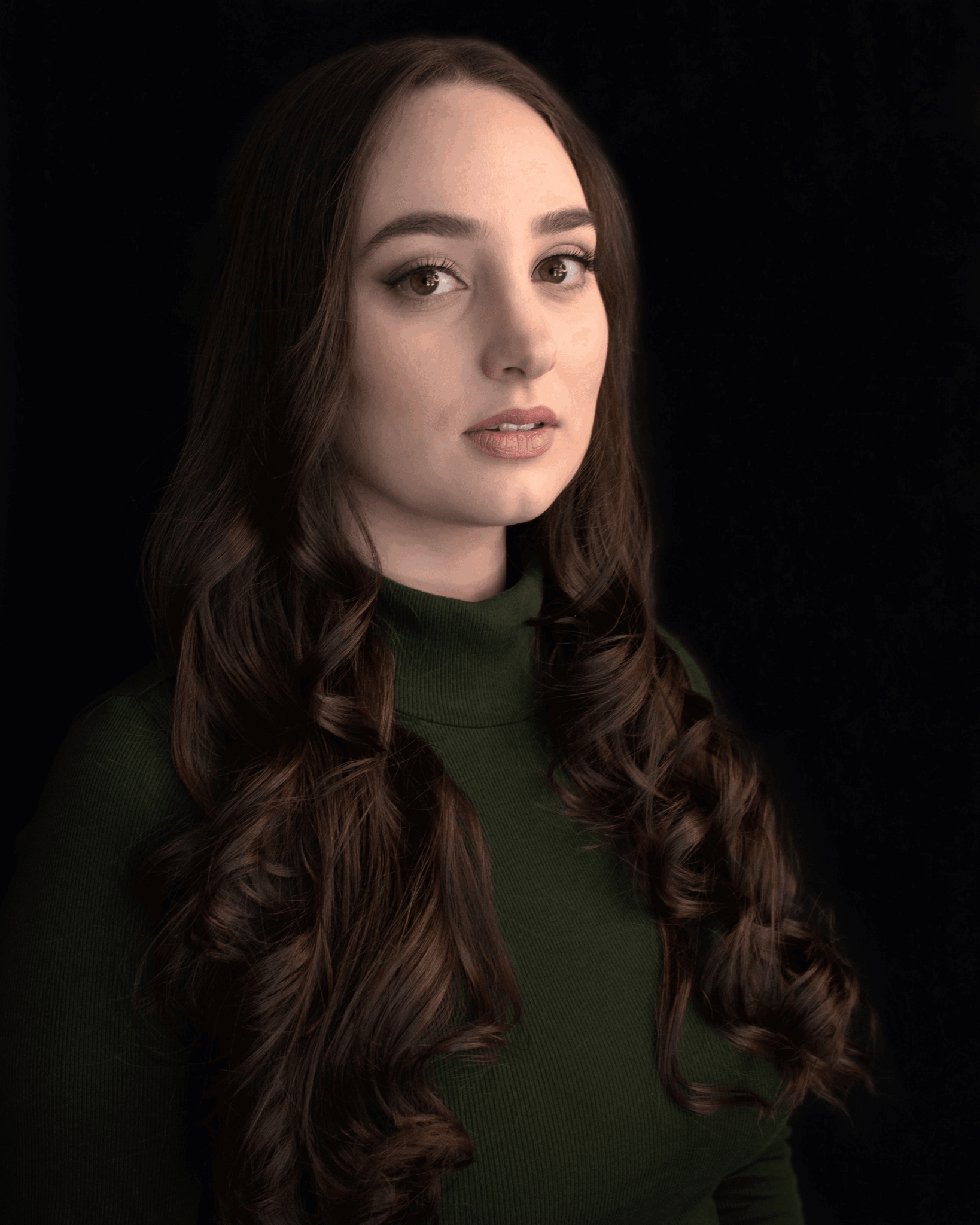We’re excited to introduce you to the always interesting and insightful Maia Gonzalez. We hope you’ll enjoy our conversation with Maia below.
Hi Maia, thanks for joining us today. Can you talk to us about a project that’s meant a lot to you?
Absolutely! I’d say one professional experience that’s really meant a lot to me was having the privilege of performing on Carnegie Hall’s Stern Auditorium/ Perelman Stage.
A management and production company called Classical Movements had reached out to me after I had worked with them for my debut as Donna Elvira in Mozart’s Don Giovanni at the Estates Theatre. This was about a month after collaborating with the Prague Summer Night’s Music Festival, produced by Classical Movements.
The team offered me a spot in Maestro Constantine Orbelian’s concert series Celebrating 150 Years of Rachmaninoff. Little did I know, this incredible and certainly unexpected opportunity would redefine my career and continue to challenge my former limiting thoughts as to what I thought was possible to achieve as an opera singer in my early 20’s.
I am so grateful and inspired by the world class coaches, teachers, and creative team members I worked with along the way, and truly couldn’t have done this without them. Because of them, I was able to achieve my role in this project and now have a new deep-seated passion for Rachmaninoff’s music, Slavic repertoire, and collaboration as a whole.
Having previously worked as an usher in that very space, I had spent several hours ushering and being in awe of the many legendary artists that crossed the stage. Never in my wildest dreams could I have ever imagined being up there myself with such renowned creatives and having so many of my friends and colleagues be there to support me. It was a full-circle moment that added an extra layer of significance to the project.
This concert series, which extended to the Carl J. Murphy Fine Arts Center and The Rectory on Princess Street, was not only one of my first professional engagements as an opera singer, but was a defining chapter in my artistic growth. As someone who had ushered in a space I had only fantasized of being able to perform in, I really hope that my story can inspire others to keep pursuing their passions because, truly, anything is possible.
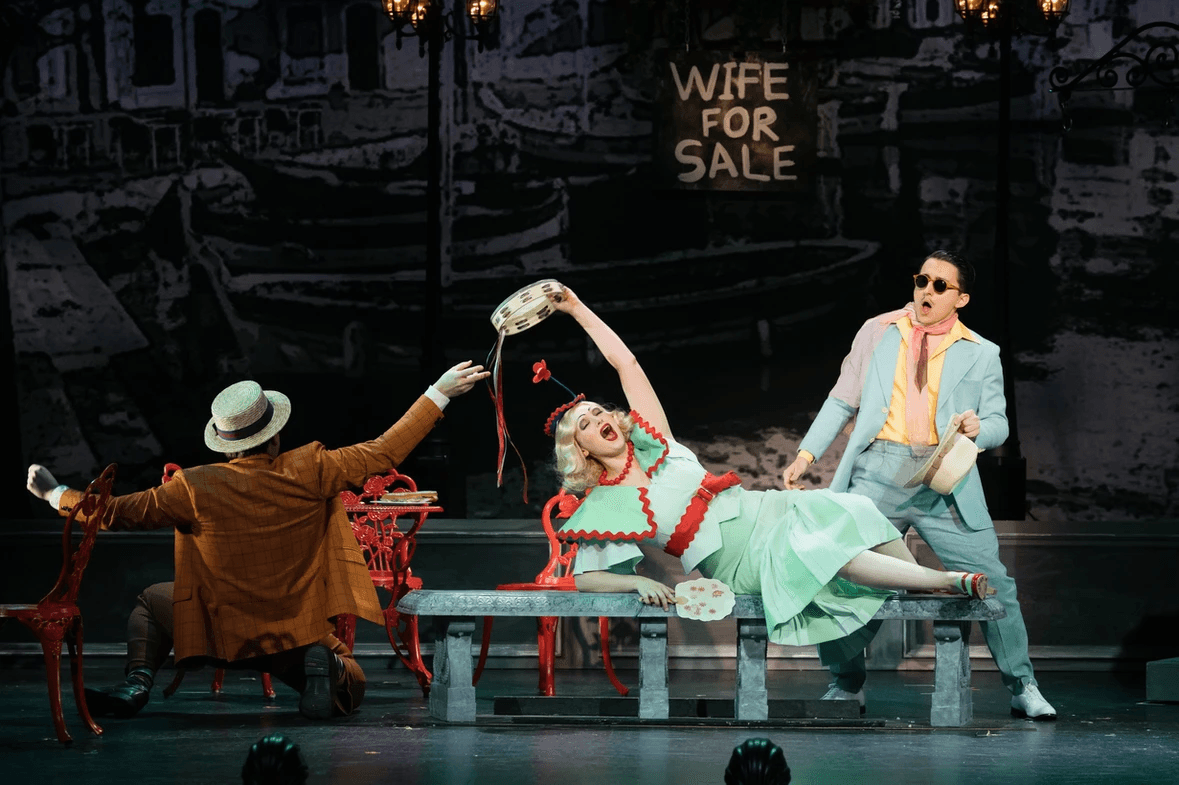
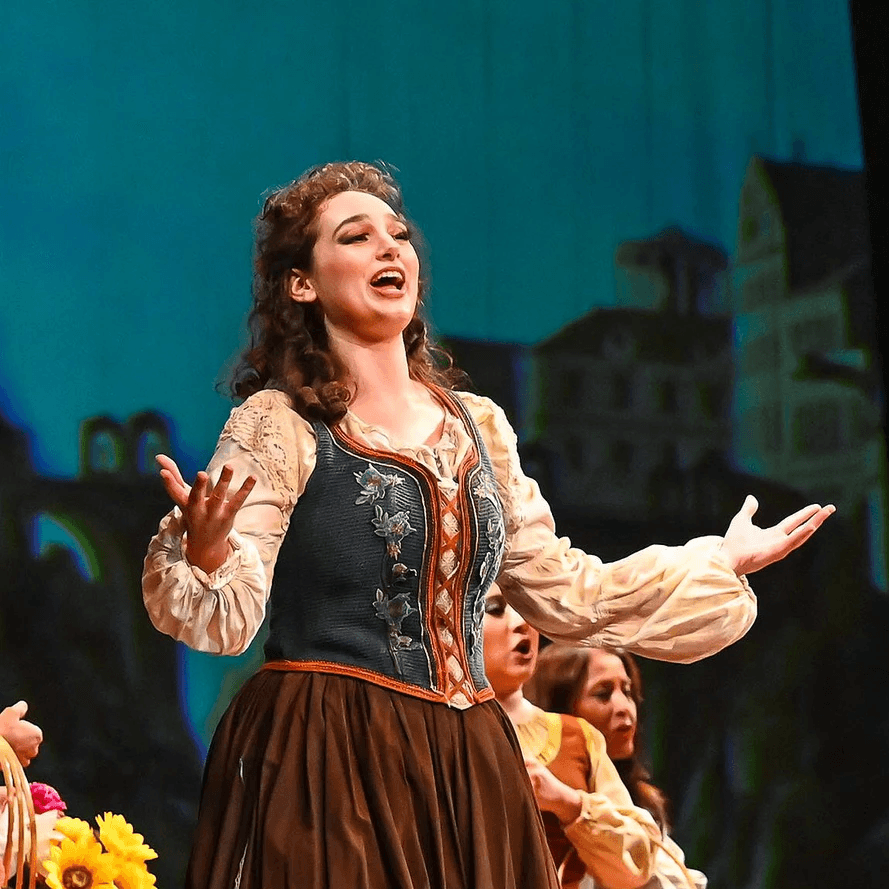
Great, appreciate you sharing that with us. Before we ask you to share more of your insights, can you take a moment to introduce yourself and how you got to where you are today to our readers.
I never envisioned myself as an opera singer. Growing up in a non-musical household, my journey began unexpectedly in my middle school choir. I was actually told around the age of 9 by a peer that I was “ruining the chorus”, so singing was far beyond something I ever thought I was capable of exceeding at even though I’ve always enjoyed and was fascinated by it.
Thanks to a few of my wonderful choir teachers who recognized something unique in my voice, I started to explore the world of singing more deeply and participated in local singing festivals. Having played piano since the age of five, studying voice was made much easier.
At the age of 15, I was encouraged to apply to the Precollege Division at Manhattan School of Music by a classmate who saw potential in me based off of my solos in choir. Once I was accepted into this prestigious program, my curiosity for specifically opera and vocal literature truly began.
Opera has always captivated me with its ability to blend music, drama, and history into a powerful, immersive experience. To this day, I am still fascinated by the intricate details of opera production and the potential for limitless artistic expression within the genre.
Today, I’m dedicated to sharing my love for music through performance and teaching. Whether it’s a solo/chamber concert, an operatic role, or guiding students in voice/piano lessons, I strive to create meaningful connections through art. Although I am an opera singer, I enjoy exploring all genres of the performing arts and will always be interested in any and all creative endeavors. I truly believe in the power of creativity to unite us as a society and inspire change in a world of so much division and hatred.
This journey has really taught me to trust my gut, which is something I am most proud of. Over the years, I have struggled in acting on this because it can be very overwhelming. As a young artist, one encounters so many perspectives from some of the most critically acclaimed teachers, mentors, and coaches in the classical world.
The challenge lies in accepting that every expert can have their own solution and outcome that truly works for not only themselves but for others. However, sometimes it is not what’s best for the artist. I’ve found that some of the most impactful professionals I have worked with and studied from hold this belief as well. Because of them, I have been able to develop this skill and find my own voice as an artist.
I am passionate about uplifting marginalized voices through as many projects as possible, challenging the minds of my audience, expanding my audience through accessibility, and creating spaces where everyone feels seen and heard through the arts. I hope to inspire others to pursue their passions, regardless of their background or circumstances and to create experiences that resonate deeply and spark conversations.
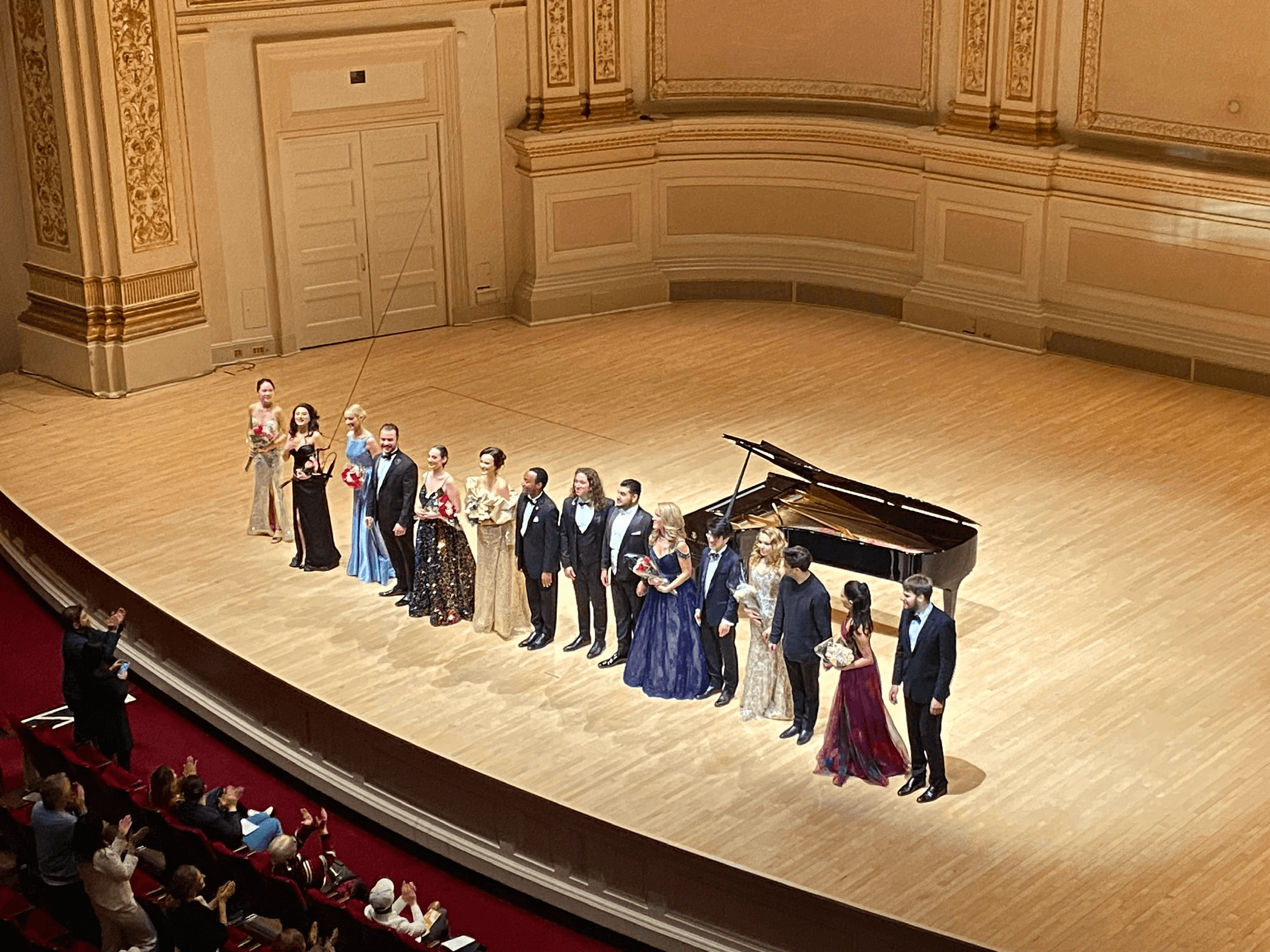
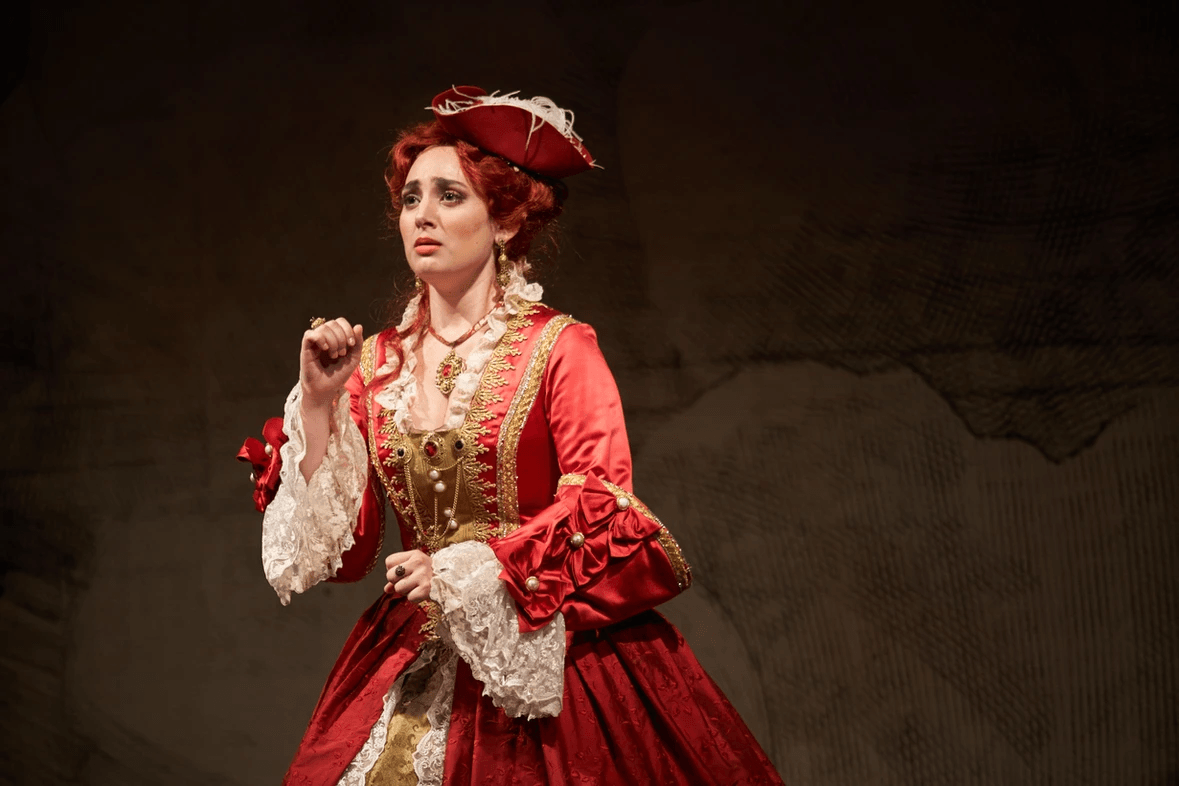
What do you find most rewarding about being a creative?
There are so many rewarding aspects to being an opera singer, but the most rewarding one for me as an artist is the impact that my work can have on others. To me, opera is truly a collaborative anomaly because of how many moving parts there are. From the musicians to the designers, stage management to the technical crew, each role is essential in creating a world that transports and captivates the audience, which is not an easy task.
Although the work is extremely meticulous for everyone, all of the hours spent on the project is worth it in the end if at least one audience member was affected. Getting to witness in real time the impact that opera can have on society is absolutely astonishing to me; given the fact that the art can be composed anywhere from months ago to centuries ago.
To know that my artistic contribution to a project has moved, challenged, provided a brief escape to, or inspired someone is incredibly fulfilling and I will never take this for granted. In my eyes, art has an undeniable ability to connect people not only with the world outside of them but even more so to the core of who they are. This as well as the timelessness of our humanity shown in opera is what drives me to continue creating and performing in a world that can be so polarizing.
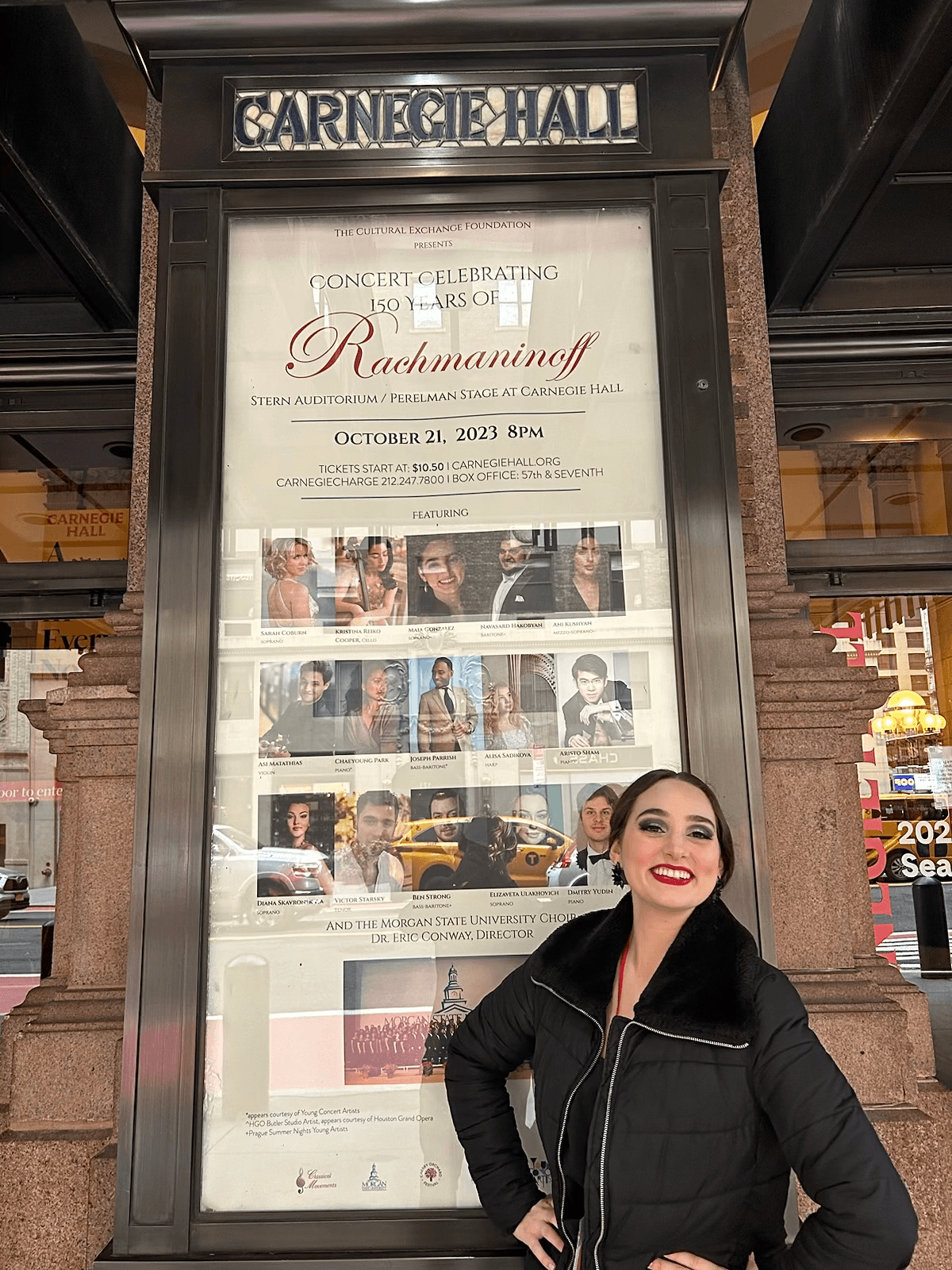
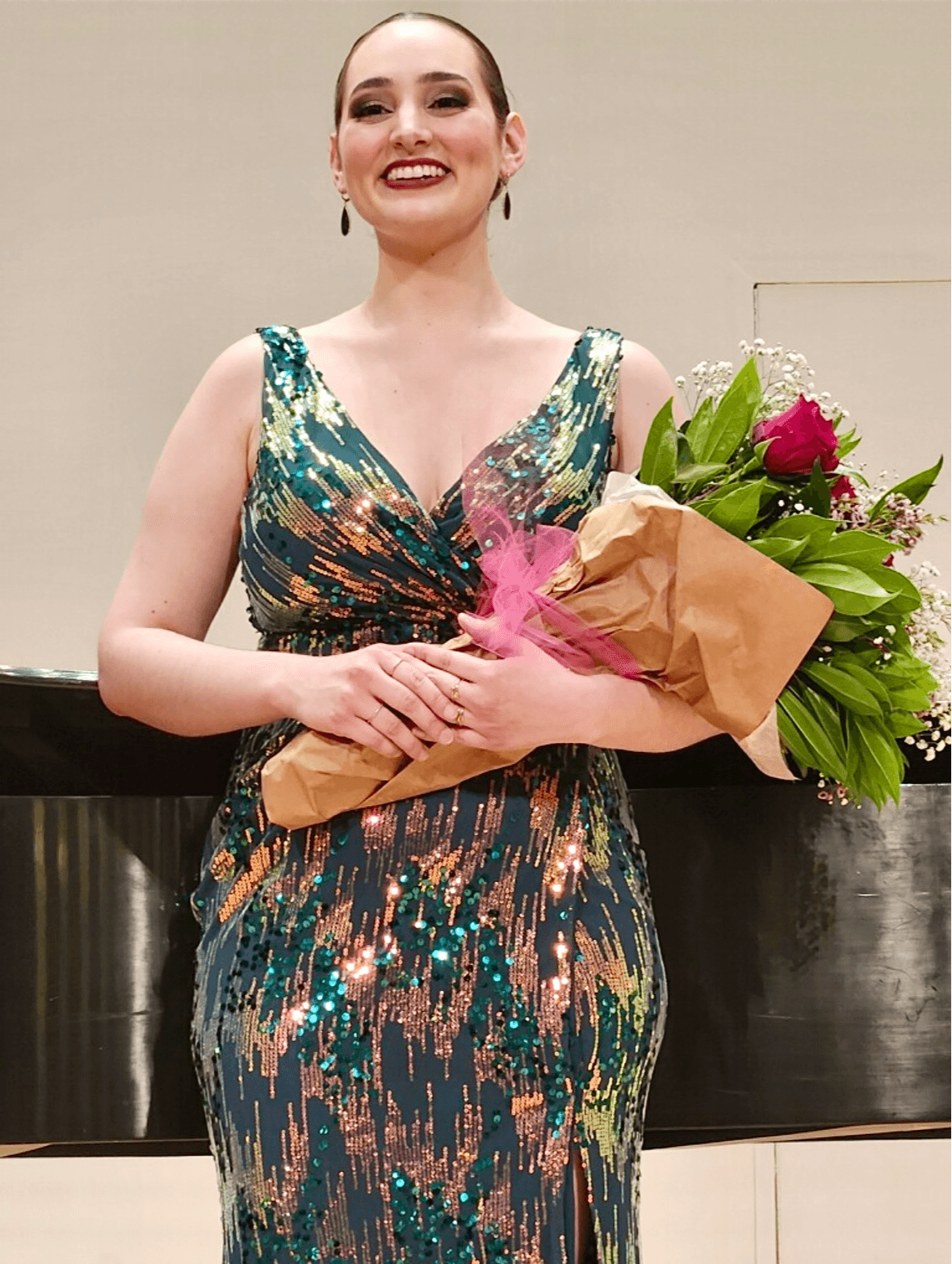
How can we best help foster a strong, supportive environment for artists and creatives?
To create this, widespread accessibility is critical. While individual patronage is essential, substantial government investment is crucial to ensure that the arts are accessible to all and is the most effective method to create significant change.
In the U.S. for example, the declining rates for funding of the arts in schools are hindering or even halting the development and potential of young creatives. Although there are a number of people in positions of power that do not see the immense value in the arts, the arts are without a doubt what make learning and engaging with the world possible. Early exposure to the arts is vital to nurture creativity and critical thinking, as well as to cultivate a sense of self and identity. I think that by prioritizing arts education, we can invest in not only the future of our cultural landscape, but in the value of artists and creatives.
Even though government support is fundamental, everyone is able to make a significant impact. A very powerful way to do this is by engaging with artists and creatives through social media, attending free events, and advocating for arts funding in local elections if this is possible where you live. If you are able to provide financial support; purchasing art, attending performances, and becoming a sponsor can directly benefit artists and arts organizations.
Ultimately, a thriving arts ecosystem requires a collaborative effort between artists, audiences, government, and private institutions.
Contact Info:
- Website: https://www.maiagonzalezsoprano.com
- Instagram: maiagonzalezsoprano
- Facebook: Maia Gonzalez
- Linkedin: Maia Gonzalez
- Youtube: maiagonzalezsoprano
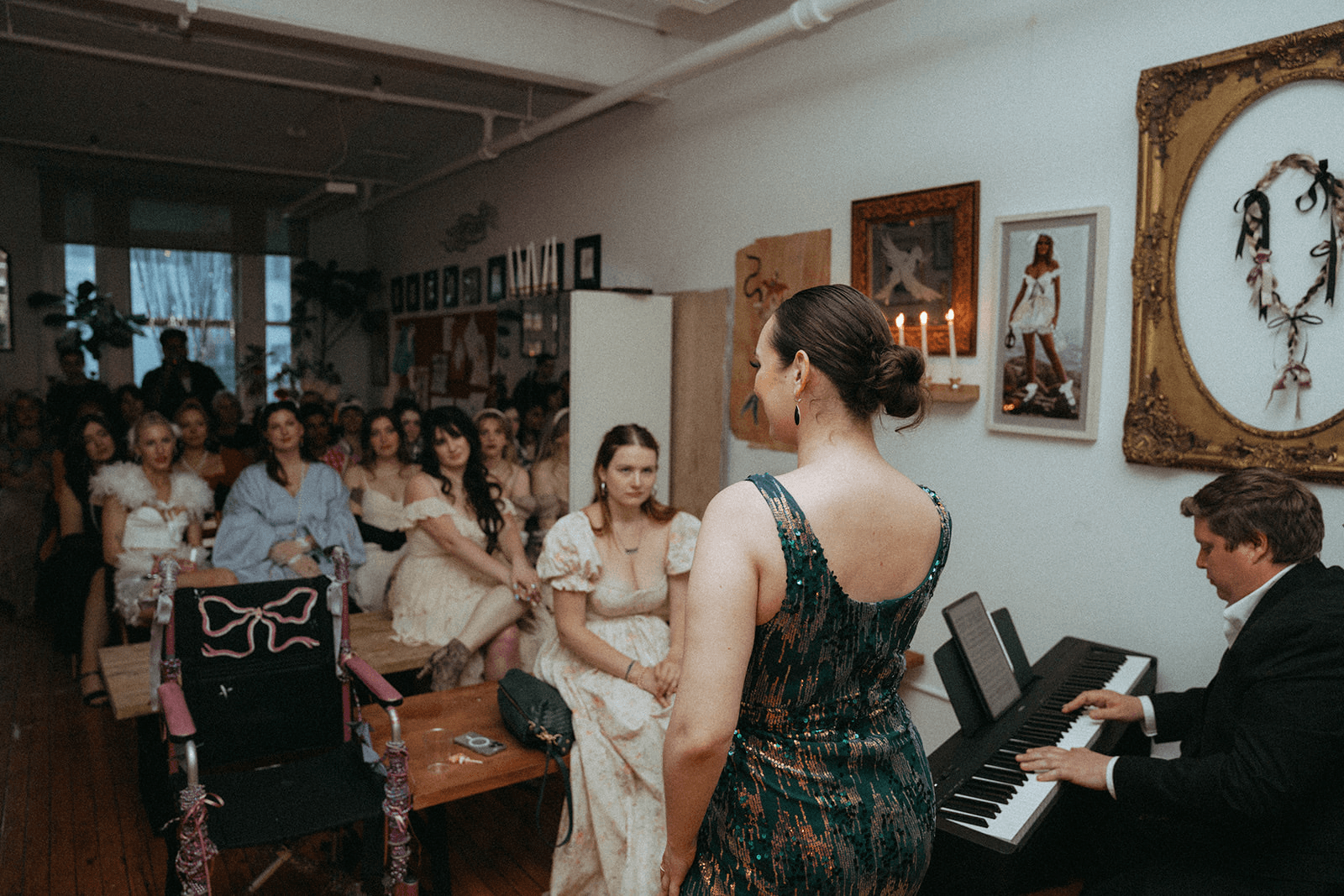

Image Credits
Neidorff-Karpati Hall
Photographer: Bryan Hatton
Producer: Manhattan School of Music
Teatro de la Ciudad de Monterrey
Photography: Christian Blancas
Producers: CONARTE and Monterrey Summer Opera Academy
The Estates Theatre
Photography: Kurt Vinion
Producers: Classical Movements and Prague Summer Nights Music Festival
Photography: Deirdre Alston
Producers: Salon Avec Moi and Girl Knew York


